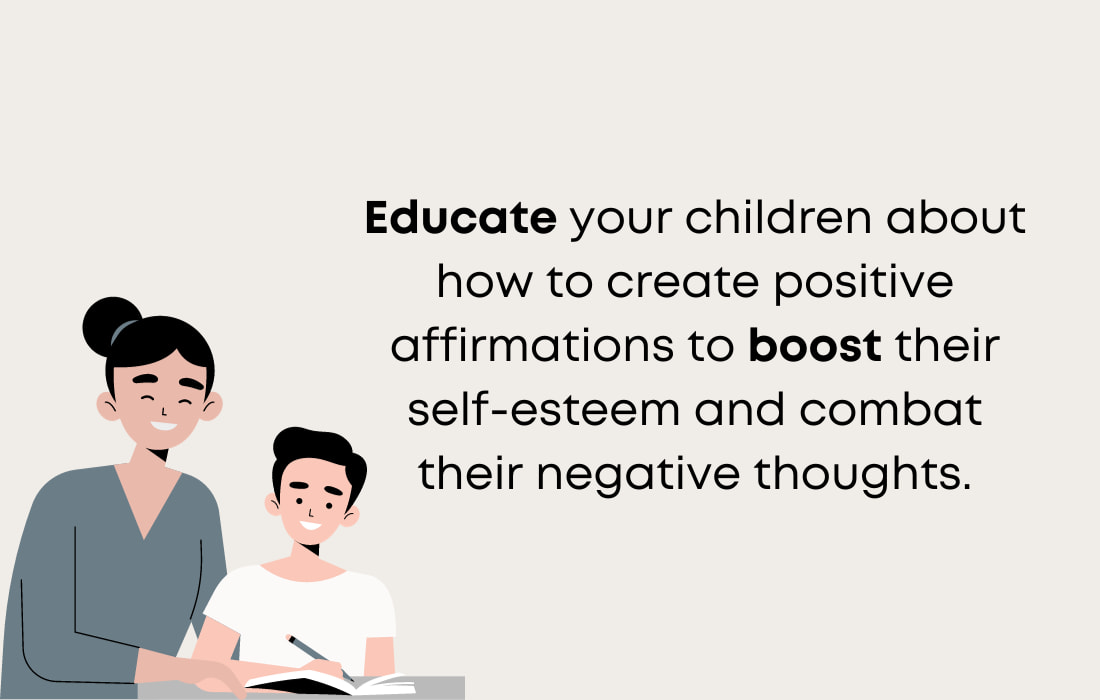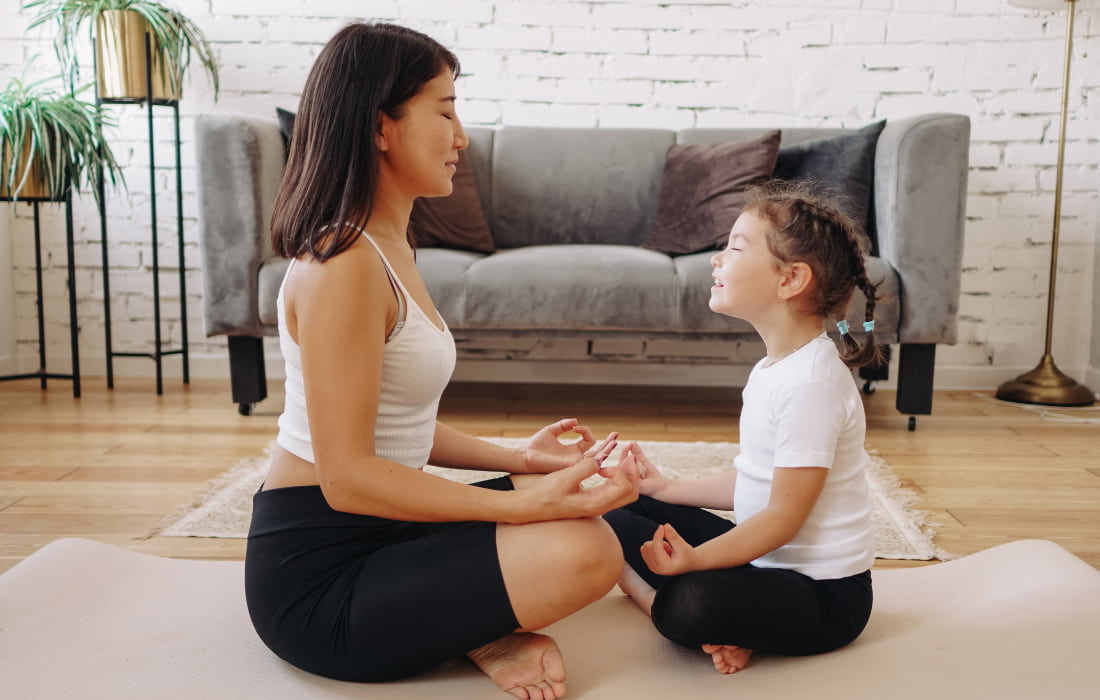“How do I teach kids positive affirmations?”
Have you ever tried convincing a stubborn toddler that broccoli is a delicacy? Well, teaching them positive affirmations is easier and a lot more fun!
In this short article, we’ll dive into the world of positive affirmations for kids and reveal a few secrets to raising confident and resilient kids who can handle anything life throws them!
Written By Tiffany Woodfield, Financial Coach, TEP®, CRPC®, CIM®

What are positive affirmations? And how do they benefit children?
Positive affirmations are short statements such as “I am brave” and “I am smart.”
They help kids emotionally by creating a positive sense of self and helping them regulate. When kids tell themselves these affirmations, they are absorbed in their subconscious mind and work on their belief system.
Remember, all self-talk is an affirmation, whether negative or positive. What you are trying to do is educate your children about how to create positive affirmations to boost their self-esteem and combat their negative thoughts.

At what age should I start teaching my child positive affirmations?
Kids are like sponges soaking up everything in their environment.
So, teaching positive affirmations at a young age is a great way to promote positive beliefs. You can even start teaching your child positive affirmations by modelling and repeating the behaviour aloud before they talk.
While it is never too early to start teaching your child positive affirmations, the need for positive self-esteem increases as they enter social situations without you, such as kindergarten and preschool.
When kids enter their tweens or teens and social media comes into play, they are highly vulnerable to negative messages from the outside world. At this stage, it is crucial to teach kids affirmations so they are secure in who they are and have an extra layer of armour for all the negative messages.
If you are rolling your eyes and thinking, “I can’t imagine my teen doing these positive affirmations,” you are not alone.
That’s why starting early is easier. If you start doing this when they’re young, they can already be comfortable with the benefits of affirmations.
Also, even though your tween or teen might not seem interested, you can still be a role model and tell them the affirmations. While it may not be “cool” to be doing positive affirmations, remember your kids are still sponges and are always watching.

How do I explain the concept of affirmations to a child?
When speaking to a child about affirmations, tell them you are teaching your brain how to think.
You can remind them that the brain works in pictures. Your brain doesn’t distinguish between real and fantasy, so when you say a positive affirmation, you tell your mind how to think.
One of the biggest challenges I find when learning to do positive affirmations, whether as an adult or a child, is not to say what you don’t want because the brain works in pictures.
For example, if you say, “I don’t want to be afraid,” the brain sees it as “I am afraid.”
We are constantly used to saying what we don’t want and not what we do want, so in this example, say, “I want to be brave.” Saying what we want is the most essential part of affirmations; the next step is to repeat and say these affirmations daily.
What are some examples of effective affirmations for children?
Below are some great affirmations for kids:
- I am brave
- I am smart
- I am a good friend
- I am confident
- I can do anything I set my mind to
- I can do hard things
- I am unique and important
- I am loved
- I am safe
- I am proud of who I am
- I am grateful for my family and friends
- I am improving and learning
- I am a good listener
- I am proud of who I am

How can I help my child believe and understand the affirmations they’re saying?
Once you choose an affirmation with your child to work on, discuss examples.
Think of times when they have demonstrated a particular skill or talent. For instance, if the affirmation is I am brave then brainstorm situations where your child has been brave. If the affirmation is, I can do anything I set my mind to then think of when they struggled with something and overcame the challenge.
Get the Free Guide and Audio Meditation for Manifesting Your Dreams
Pop your email address in the form below to get my easy checklist and guide to manifesting and the guided audio meditation to help you get started.
You’ll also get one or two emails per month with the latest blog posts about abundance, wealth-building, manifesting, and creating a fulfilling life.
Related Articles
💎 80+ Positive Affirmations for Women
💎 Positive Affirmations When Feeling Down
💎 How Many Times To Write Affirmations
💎 How to Start Manifesting Your Desires Based on Science
About the Author

TIFFANY WOODFIELD is a financial coach, cross-border expert, and the co-founder of SWAN Wealth based out of Kelowna, BC. As a TEP and associate portfolio manager, Tiffany has extensive experience working with successful professionals who want to leave a legacy and enjoy an adventurous, work-optional lifestyle. Tiffany combines extensive knowledge from her background as a financial professional with coaching and her passion for personal development to help her clients create a unique path that allows them to live their fullest potential. Tiffany has been a regular contributor to Bloomberg TV and has been interviewed by national and international publications, including the Globe and Mail and Barron’s.